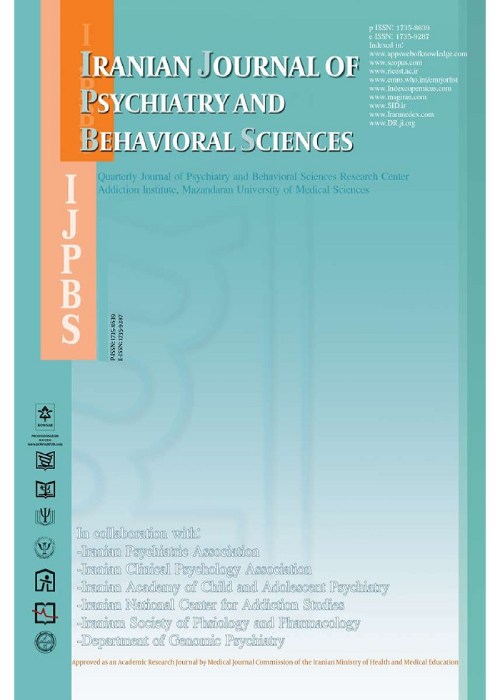Evaluation of Clonidine Augmentation Therapy for Obsessive-Compulsive Disorder Treatment; a Randomized Clinical Trial
Obsessive-compulsive disorder (OCD) is a common neuropsychiatric disorder worldwide. Inadequate response of OCD patients to a usual agent makes this disorder a great challenge, and recent studies have recommended augmentation therapy as a new choice.
As traces of noradrenergic dysfunction have been noted in OCD pathophysiology, the current study aimed to assess the efficacy of clonidine augmentation therapy for treating OCD.
This was a randomized clinical trial conducted on 57 OCD patients divided into the two groups of 1-mg clonidine augmentation therapy (n = 28) and placebo group (n = 29). The medication was administered for 12 weeks. Patients’ primary treatment, including SSRIs or clomipramine, continued by receiving the same dose used before participation in this study. The Yale-Brown Obsessive-Compulsive scale (Y-BOCS) and Clinical Global Impression-Severity scale (CGI-S) were used to assess the patients at the start of the study and then at four-week intervals. Drug-related adverse effects and global improvement were assessed and compared between the two groups.
The initial CGI scores were 3.89 ± 1.57 and 4.10 ± 1.61 at the baseline and 2.29 ± 1.18 and 3.07 ± 1.51 at the end of the study in the intervention and control groups, respectively. Both groups revealed a significant improvement (P-value = 0.001) with no significant difference between them (P-value = 0.22). The primary Y-BOCS score in the clonidine-treated group was 27.61 ± 8.08 versus 28.69 ± 7.44 in the control group at the baseline, which declined to 20.25 ± 6.08 versus 25.45 ± 7.35 at the end of the study, respectively. Both groups revealed a significant improvement (P-value = 0.001), but there was no statistically significant difference between them (P-value = 0.06). Drug-related complications were not statistically different between the two groups (P-value > 0.05); however, the clonidine-treated patients presented more adverse effects than control subjects.
Although the use of clonidine posed no remarkable drug-related adverse effects, it was not superior to placebo considering symptom relief.
- حق عضویت دریافتی صرف حمایت از نشریات عضو و نگهداری، تکمیل و توسعه مگیران میشود.
- پرداخت حق اشتراک و دانلود مقالات اجازه بازنشر آن در سایر رسانههای چاپی و دیجیتال را به کاربر نمیدهد.


